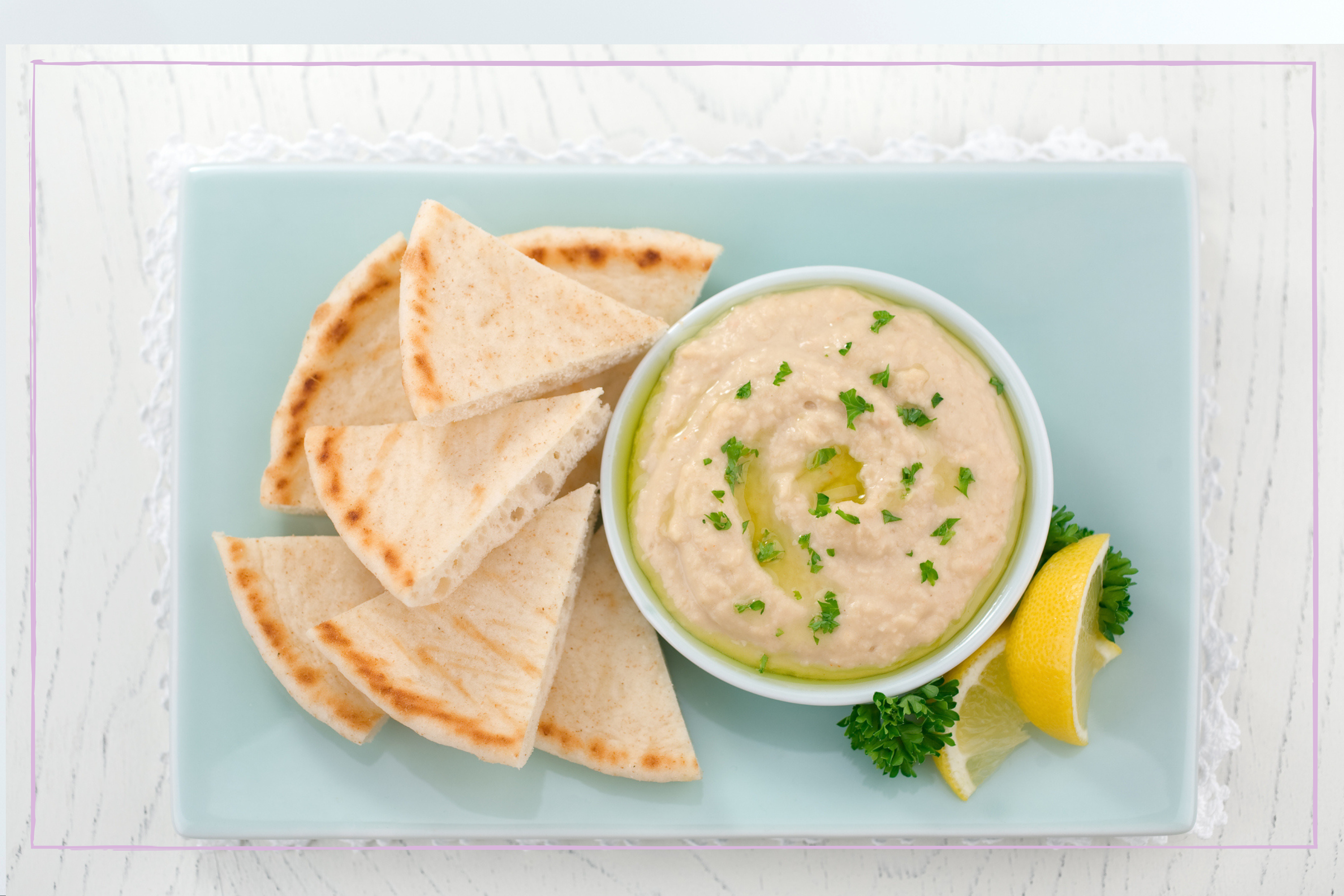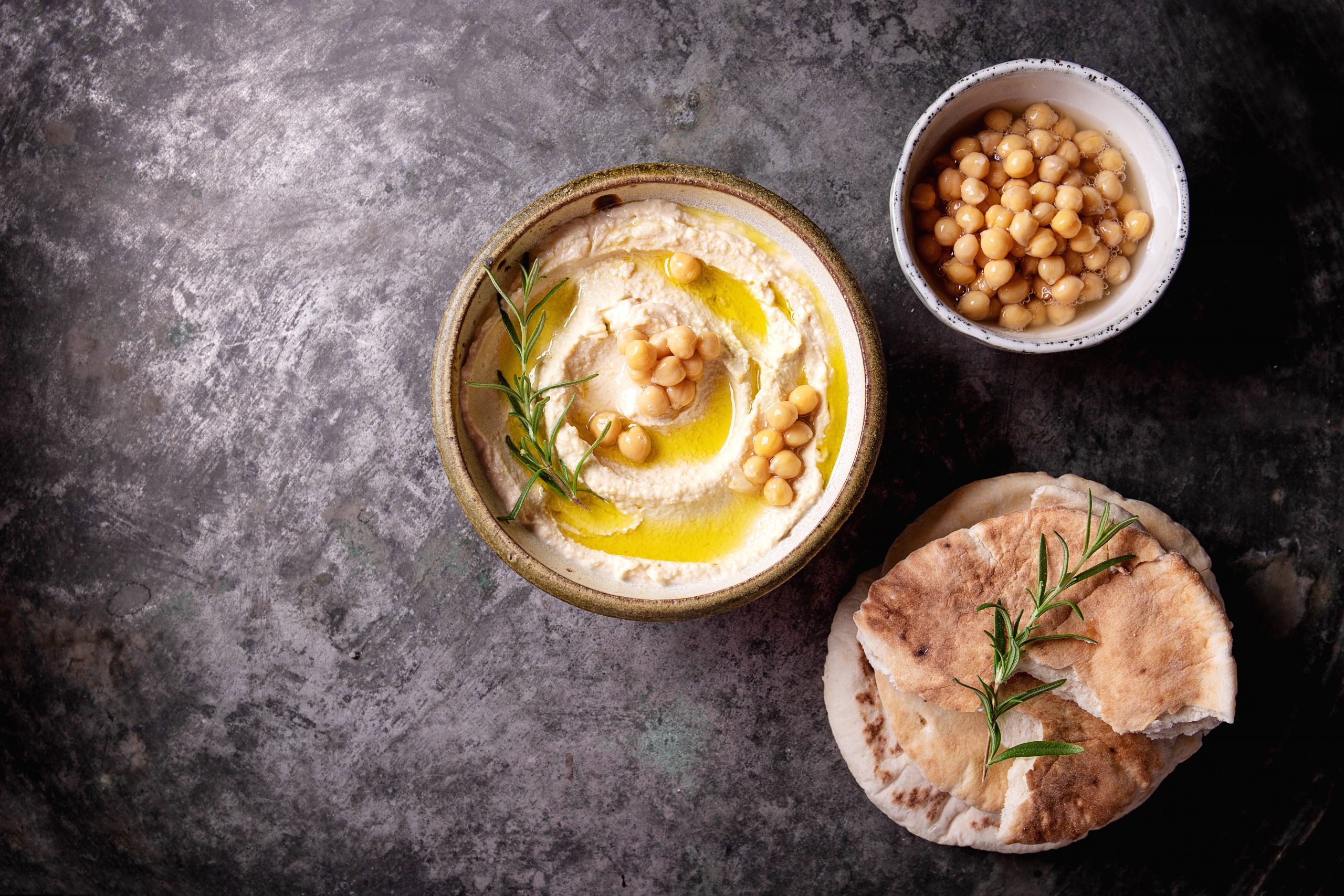Is hummus healthy? Nutritionist reveals the top health benefits
We could happily eat it every day, but is hummus healthy?


If you’re a fan of a hummus, you might be wondering what exactly is this creamy concoction - and is it providing us with any health benefits?
Nutritionist Laura MacDonald tells us: ‘Hummus provides many nutrients; plant protein, healthy fats, fibre which supports gut health, and it has a low glycaemic load which means it can help to keep blood glucose levels stable. This is important in energy balance and can help to reduce sugar cravings.’
It's all about that fibre, and hummus packs in a healthy punch of fibre, which can help to keep us full. In fact, 100g of the stuff can contain about 4g of fibre which is a nice little contributor to our recommended 30g of fibre per day.
What is hummus made of?
It’s chickpeas, we get it, but what else? Laura explains: ‘Hummus is made from chickpeas, garlic, lemon juice, olive oil and tahini - a paste made from sesame seeds. Many people add herbs or spices such as paprika or cumin.’
This moreish dip also contains all three macronutrients; carbohydrate, protein and fat, making it a pretty well balanced addition to our daily diet. However, the amount of protein hummus contains isn't particularly high so if you're including it within a meal, it may be wise to have it alongside another protein source. What's more, hummus is gluten free and usually vegan, although you may find some shop bought ones contain yoghurt.

Want to make your own hummus?
Here's our simple hummus recipe OR if you want to up your gourmet style...
Samer Chamoun is a chef and owner of The Lebanese Bakery. He explains that for their perfect hummus, they start with soaking the dried chickpeas over night in tap water, adding 5g of bicarbonate soda per 1000g. 'This prevents the calcium in the water from sticking pectin in the pea shells together and it encourages the pectin to separate which creates softening effect and that makes our hummus silky smooth.'
Parenting advice, hot topics, best buys and family finance tips delivered straight to your inbox.
'Then in the morning we drain the water, tip the chickpeas into a pot and cover with fresh water. It takes around 50 minutes to cook and the key is to skim the surface while simmering to keep the water clear. Once cooked, the chickpeas need to be cool, so after draining we run under cold water while adding some ice.
'These cool chickpeas go into a food processor with tahini, lemon juice and citric acid. Once all the ingredients combine into a silky smooth paste (not overmixed like a mousse) we finish the mix by slowly adding sunflower oil and sprinkle of salt.'
Serve with some Lebanese flat bread and impress guests, guaranteed.

Freelance writer Lucy Gornall is the former health and fitness editor for various women’s magazines including Woman&Home Feel Good You. She has previously written for titles including Now, Look and Cosmopolitan, Woman, Woman's Own, Woman's Weekly and Chat. She lives and breathes all things fitness.